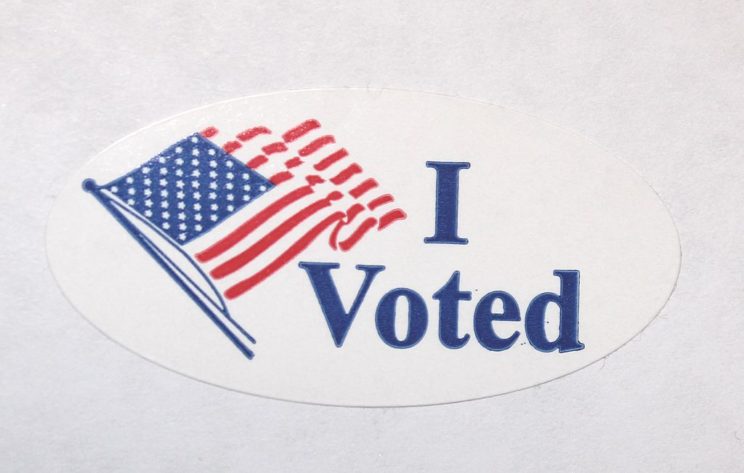
As of October 28, over 76 million early and absentee votes will have been cast in the 2020 election. But will Christian graduate students vote and participate in the political process? And will we see civic engagement and political participation as a critical way that we can live out love for our neighbor and neighborhood?
In my anecdotal experiences from graduate school, most of my Christian peers were politically disengaged. Even when living in a battleground state like Ohio, there was little interest in talking about politics, engaging politics, or considering how our faith should inform our politics.
And I personally shied away from politics. I was concerned that speaking out may affect my fledging academic prospects, cause me to be ostracized from the church spaces I was in, and undermine the unity of the graduate student fellowship. That is not to say that there were not Christian graduate students who were politically passionate and civically engaged, but they were the exception and not the norm. By comparison, my non-Christian peers seemed more outspoken and zealous for different political agendas and interests.
Data from the 2018 Cooperative Congressional Election Study (CCES) collaborates my anecdotal experiences. Christian graduate students are less interested in politics than Americans overall, Christians overall, and graduate students overall. Christian graduate students are also less likely to engage politics online than graduate students overall and less likely to have engaged in political advocacy like attending a political meeting, putting up a political sign, working for a candidate, attending a political protest, contacting a public official, or donating money to a political candidate in the past year.
And in the most important political engagement metric, voting, Christian graduate students lagged as well. Less than 4 in 10 (39%) of Christian graduate students voted in 2018, compared to 45% of graduate students, 52% of Americans overall, and 56% of Christians overall.

I hope that starting with this election season, we will resolve to love our neighbors by seeing how our political engagement is how we love our neighborhood.
Jesus uses the parable of the Good Samaritan (Luke 10:25-37) to teach us who our neighbor is and how we might love them. We often focus on the differential response of the priest, the Levite, and the Samaritan. But focusing only on the personal restoration of the traveler by the Samaritan overlooks the need to address the structural injustices plaguing the neighborhood. While we should be like the Samaritan who loves our neighbor, we should also seek redress for the lawless Jericho road where robbers easily prey on travelers. More than taking care of one neighbor, we need to consider how we can love the neighborhood and break the cycle of injustice to ensure that more neighbors are not victimized.
In our democratic society, civic participation, political engagement, and voting is one significant way we can love our neighbors by seeking to improve our neighborhood. When we vote, we give support for candidates and policies that improve the welfare and well-being of our communities at the local, state, and federal levels. While we can disagree on what types of policies best improve our communities and would most effectively reduce disparities, we can agree that the political realm is where structural change and reform can be accomplished so that we can love our neighbors at scale by improving our neighborhoods.
When we don’t participate in the political process, are we not throwing away the opportunity to advocate for our neighbors, the poor, the marginalized, and the suffering among us? And when we don’t vote, are we not saying that we are we doesn’t really care about the neighborhood?
Amidst an unprecedented pandemic and economic uncertainty, let us cast off our ambivalence toward the prevalent brokenness around us. This election is not necessarily the most important election of our lives, but it is critical in determining the immediate future of our community. Voting cannot be the sum of our political engagement. Nor is voting the fulfillment of our Christian call. It is nonetheless one way we can all seek to love and care for our neighbors and neighborhoods.
Joshua Su-Ya Wu is a husband, father, pastor’s kid, and social scientist seeking to faithfully reflect Christ in all aspects of his life. He has a doctorate in Political Science from The Ohio State University, works in analytics and data science, and writes about data analytics at Reasonable Research and the intersection of faith and culture at Stuff I Didn’t Learn in Church. He currently lives in Rochester New York with his wife and two kids, and can be reached on Linkedin or on Facebook
Joshua Su-Ya Wu is a husband, father, pastor’s kid, and social scientist seeking to faithfully reflect Christ in all aspects of his life. He has a doctorate in Political Science from The Ohio State University, works in analytics and data science, and writes about data analytics at Reasonable Research and the intersection of faith and culture at Stuff I Didn’t Learn in Church. He currently lives in Rochester New York with his wife and two kids, and can be reached on Linkedin or on Facebook

Leave a Reply